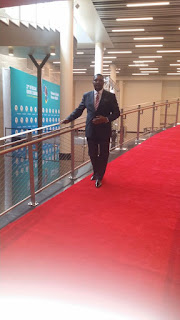

The world needs a strong Africa: UNWTO candidate Walter Mzembi shares his views
Zimbabwe’s Tourism Minister, the Honorable Dr Walter Mzembi, has been circling the globe to lobby countries to vote for him as the next Secretary General for the United Nations World Tourism Organization (UNWTO). The Minister of Tourism and Hospitality Industry shared his views with Sunday Mail in Zimbabwe and eTurboNews:
Minister Mzembi stated:
I have come of age as arguably the dean of African tourism ministers. As a continent, we have realised that we should give one of our own an opportunity to contest for the United Nations World Tourism Organisation secretary-general’s post. Since the UNWTO’s inception in 1975, no African has held that post and we see that we are increasingly becoming the weak link in global performance.
In the year leading to 2015, tourism arrivals to Africa declined by -3 percent, down to 53 million from 56 million. We are only participating to the extent of 3 percent of global tourism performance at US$1,5 trillion. This sector employs one in 11 people in the world, equivalent to 288 million jobs that are generated by this low-hanging fruit.
Africa’s market share is just a mere 3 to 5 percent, so we are the weak link and I think the globe needs a strong Africa that will contribute to the growth, not the decline of the sector. Our performance shouldn’t weigh down global performance.
It is only an African in that position who can reverse the trend because the world is pretty much at a loss on how to deal with Africa. Ahead of us is 2017 — the United Nations International Year for Sustainable Tourism for Development — and we don’t want to get there with an Africa that is found wanting, a weak link in the chain.
We want to get there with an Africa with clarity on positive growth projections and is an equal player.
This started last year when I impressed on Africa Union Commission Chair Dr Nkosazana Dhlamini-Zuma and her team that to get to the “Africa we want”, we had to integrate the missing link in Agenda 2063 — travel and tourism — as we capture it under the UNWTO Commission for Africa that I chair.
How would we get to 2063 — 50 years from now — without a continental tourism policy?
Travel is the revolution of our contemporary times.
There were 25 million tourists 65 years ago, today we have 1, 2 billion.
This kind of exponential growth has no comparison to any other economic sector.
It would be a tragedy if Africa continues missing in action in this sector that precedes trade and investment.
There is a tradition in UN systems — if you follow the current race for the replacement of Ban ki-Moon — that favours some kind of equity and regional rotation in the deployment of key positions.
If this is anything to go by, it is in the UNWTO. It’s time for Africa, and I have been endorsed to carry the cross.
I must state here at the outset, though, that I am very grateful to the President of the Republic of Zimbabwe, Cde Robert Mugabe, for allowing this special dispensation for me to run for office with the added advantage of incumbency in the capacity of Minister of Tourism.
It is a joy to work with him to the extent that he comprehends the significance of deployment to international systems as it has huge benefits for the country and continent.
UNWTO benefits to Africa
My brief is marketing and promoting Zimbabwe domestically and internationally. The campaign is an add-on to what I am already doing.
I haven’t altered my travel diary to answer this campaign.
My routine travel diary is natural to the exposure that anyone seeking office would have to be subjected to.
So, I am simply leveraging on the leadership demands of my mandate as Minister and Chair of the UNWTO Commission for Africa to pitch my candidature.
I have a dual theme, “It’s Time for Africa” and “Africa’s man for the World”.
The first aspect speaks to our plea for fairness and equity, whilst the second deals with my own craft competence for the post.
The campaign is arguably one of the most followed issues in global tourism today.
The Walter Mzembi brand is synonymous with Zimbabwe and vice versa (so there are) intangible benefits that come with brand recognition arising from elective processes.
I will use two analogies: Barack Obama and his Kenyan descendants and how every Kenyan proudly associates with this brand name, the President of the United States.
There is also Koffi Annan during his time as UN Secretary General and how every Ghanaian claimed relations of one shade or another with him.
In both instances, the deployments raised the brand profile and equity of Kenya, Ghana and Africa.
So shall it be with me, Zimbabwe and Africa in the UN system.
Many people take stock of tangible benefits, placing the self at the centre to say, “How much did I make out of this event?”
We count intangible benefits, the image and reputation of the country to the extent that the brand has never been the same after (the 20th Session of the UNWTO General Assembly co-hosted by Zimbabwe and Zambia).
Prior to this, Zimbabwe — gliding through sanctions slapped by the European Union until November 2014 when revocation of Article 96 was enacted, combined with Zidera by the US — was not the world’s most favoured host of the UNWTO General Assembly.
You don’t want to imagine the disdain I met when I first proposed Zimbabwe as a host!
It reminded me of John 1: 46, “And Nathaniel said to him, ‘Nazareth! Can anything good come out of Nazareth?’”
Phillip said to him, “Come and see.”
It was unimaginable that the Messiah could come from Nazareth.
The world came to Victoria Falls in 2013 and saw for itself, and its sentiment is best captured by the remarks of the incumbent Secretary General, Dr Talib Rifai.
Dr Rifai had this to say, “This has been the best attended General Assembly in the history of General Assemblies.”
After this, we have never looked back.
September 2014 saw Zimbabwe being awarded the World Best Destination Status by the Bucharest-based European Council on Tourism and Trade.
The New York Times included us in its 2015 Annual “52 Global Must Visit Destinations” Report, with the citation, “Once avoided, now a must see”.
Those who were looking for tangible benefits and probably did some invoicing of some of the activities of the event have since forgotten about it and yet intangibly, the world still remembers it.
The country’s tourism has grown in leaps and bounds to the extent where it is acknowledged not just as an economic pillar, but one that now leads in projected sectoral growth at 4,1 percent for the year 2015-2016, according to the Minister of Finance’s 2015 National Budget statement.
Turning adversity into opportunity
Zimbabwe had a negative brand name recognition when I assumed office in 2009.
I immediately realised that there was not a single person who did not know Zimbabwe out there.
So, I sought, in the first instance, to place a new Zimbabwe in the mindset of the international community through re-engagement and getting the country readmitted into the canons of global tourism.
I realised at that stage that it was possible to leverage tourism as a peace sector and a tool for citizen or public diplomacy.
I also learnt that in the majority of cases, ordinary citizens have absolutely no clue on fallouts between State administrations.
Therefore, tourism would be the bridge for people-to-people diplomacy that nation States should never collapse.
On the back of this philosophy, all my engagement with international source markets had a political message and plea to State administrations on behalf of the people of Zimbabwe and in the process, negotiating away negative travel advisories.
By July 2009 — five months after my deployment — the world had bought this message and granted Zimbabwe a clean bill of travel health.
Immediately after that, I took a rebranded Zimbabwe into UNWTO leadership, starting with our election to the executive council in September 2009 in Astana, Kazakhstan.
We remained in there until 2013 when I changed course for the country and lobbied for the Commission for Africa Chairmanship that we hold up to this very day.
So, we have been in global agenda-setting for tourism since.
The Africa Travel Association — recently acquired by the Washington-based Corporate Council for Africa in its new structure — has proposed a Council of Ministers which they have asked me to chair. This would be a record fourth time that I am president of the association.
In summary, I have conquered the Nazareth factor on behalf of my country, and now is the time to do it for Africa!
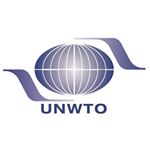
International tourism continues to grow above average in the first four months of 2016
2016 started on a strong note for international tourism. International tourist arrivals grew by 5% between January and April 2016 according to the latest UNWTO World Tourism Barometer. Results were robust across almost all subregions and many destinations reported double-digit growth. Prospects for May-August remain positive, with around 500 million tourists expected to travel abroad in the Northern Hemisphere summer holiday peak season.
Destinations worldwide received 348 million international tourists (overnight visitors) between January and April 2016, some 18 million more than the same period last year (+5.3%). This follows an increase of 4.6% in 2015, and could make 2016 the seventh consecutive year of above-average growth, with international arrivals increasing by 4% or more every year following the crisis in 2009.
“Results show a strong desire to travel and this continues to drive tourism growth. Destinations keep benefitting from solid demand across all world regions despite ongoing challenges, showing that tourism is a dynamic and resilient economic sector,” said UNWTO Secretary-General Taleb Rifai.
“Yet, despite these good results, the tragic events of recent months remind us that safety and security remain a major challenge for all. We must continue to work closely together to address this global threat and ensure tourism is an integral part of emergency planning and response at global, regional and national level” added Mr. Rifai.
By region, Asia and the Pacific (+9%) recorded the highest increase in international arrivals, with all Asian subregions enjoying growth of 7% or above. By subregion, Subsaharan Africa (+13%) led growth, strongly rebounding from previous years’ modest results.
UNWTO forecasts international tourist arrivals to increase by 3.5% to 4.5% over the full year 2016, in line with UNWTO’s long-term projection of 3.8% growth a year for the period 2010 to 2020.
Results by region
Asia and the Pacific (+9%) recorded the highest growth in international arrivals across world regions in January-April 2016, with robust results in all four subregions. South-East Asia and Oceania both achieved 10% growth, while arrivals in North-East Asia increased by 8% and in South Asia by 7%.
In Africa (+7%), international tourist arrivals experienced a clear rebound in Subsaharan Africa (+13%), while in North Africa results were down by 8%.
In the Americas (+6%), all four subregions continued to enjoy significant growth in the first four months of 2016, led by Central America and South America (both at +7%). Arrivals in the Caribbean (+6%) and North America (+5%) were fuelled by continued strong outbound demand from the United States, where tourism expenditure increased by 9% through May.
Europe (+4%), the world’s most visited region, consolidated its healthy growth of recent years with Northern Europe and Central and Eastern Europe (both at +6%) in the lead, followed by Southern and Mediterranean Europe (+4%) and Western Europe (+3%).
International tourist arrivals in the Middle East are estimated to have declined by 7% through April according to available information.
Results for both Africa and the Middle East should be read with caution, as they are based on currently limited data available for these regions.
Prospects remain positive
UNWTO estimates that some 500 million tourists will travel internationally between May and August 2016, the Northern Hemisphere summer holiday peak season, accounting for about 41% of the year’s total international tourist arrivals.
According to the UNWTO Tourism Confidence Index, prospects for May-August 2016 remain positive and in line with the performance of January-April. The Index shows confidence is highest in Europe, followed by the Americas.
On the positive side, Brazil is looking forward to the 2016 Summer Olympics in Rio de Janeiro in August. A downside is that security concerns remain high on the agenda. Furthermore, the United Kingdom’s vote to leave the European Union in the recent referendum (‘Brexit’) has raised uncertainty in the market and led to a substantial depreciation of the UK pound Sterling. However, UNWTO does not expect this to have a significant impact on international travel in the short term.
Note: Results reflect preliminary data reported to date and are subject to revision.
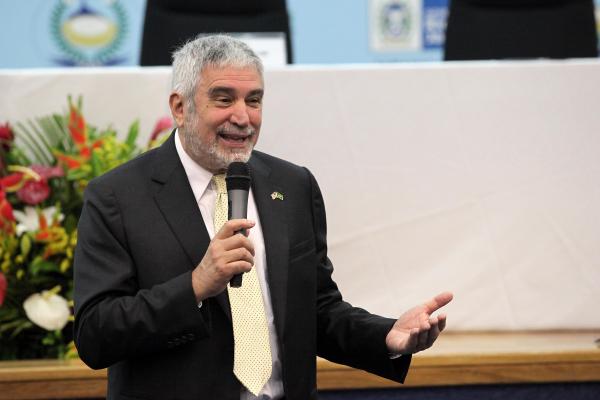
Tourism, a force for peace or bloodshed? The choice is up to us!
BY DR. PETER TARLOW
The month of July has not been an easy month in the world, and especially in the world of tourism. Until recently, tourism oriented nations experienced one or another form of crisis on a tri or bi-monthly or monthly basis. During the last few weeks, the crisis du mois seems to have become the crisis de la semaine (the crisis of the week).
During the last few weeks, the Middle East, especially Iraq and Saudi Arabia, and the Asian sub-continent have witnessed an upsurge of violence. Attacks have not only been against tourist hotels but also against restaurants, in such diverse places as Dacca, Bangladesh and Bagdad Iraq. In both cased patrons were attacked and tourists (or foreigners), taken hostage and murdered. Last month terrorists began to shoot restaurant patrons in Tel Aviv, Israel, and only the quick action of the other patrons stopped the attack from being worse.
Also during this first half July tourism officials are still dealing with the disappearance of the Air Egypt plane over the Mediterranean Sea. In the United States the tragic killing of two African-American men provoked street manifestations around the nation and the murder of police officers in both Texas and Tennessee. Europe continues to deal with a continental-wide crime wave and the latest terrorist attack in Nice, France.
The Nice attack occurred in southern France’s most important tourism city on Bastille Day and the start of the summer tourism season.
In Turkey there was a failed coup d’état with hundreds either dying or injured. To add to the tourism industry’s challenges there is Brazil where the Summer Olympics Games are to be held in the midst of a major crime wave coupled with an economic and political crisis, and where the possibility of a police strike during the 2016 Olympics plus a series of medical issues threatens the Olympic Games’ success.
Visitors will be ”treated” with seeing some 85,000 soldiers on the streets of Rio de Janeiro. South America must also deal with Venezuela as that country continues its downhill slide into both hunger and political turmoil and with the aftermath of Ecuador’s earthquakes. To round out the month’s first fortnight, in the USA both major political parties are holding their well televised national conventions with thousands of protestors promising violence.
A Word of Caution
Terrorism, a phenomenon that has existed in various forms for over 400 years, is a highly complex topic. It is so complex that there is a whole scholarly literature dedicated to understanding it and its impact on both tourism and world economies. This short article does not provide an extensive analysis of the topic but rather seeks to raise important questions for contemplation by those in the tourism industry.
Furthermore, despite the public’s desire for total travel and tourism security and safety, no one can guarantee a pain-free and totally secure travel experience. Even the best experts cannot predict every act of terror and no one can control a free media. Especially in an age or terrorism risk is not only part of the travel and tourism experience, risk it is also a part of life.
The following article then does not provide a recipe for travel and tourism safety for anyone particular part of the industry. It is strongly recommended that tourism experts consult on a continuous basis with travel security experts before implementing any policy decisions. To do less is to place the traveling public in undue risk.
Dealing with an Age of Violence
The Tourism Industry, if it is to survive in an ever changing and more challenging world will need to consider various paradigm shifts. Among these shifts are the following:
-The tourism industry needs to come to the sad but true realization that it is not merely collateral damage within the world of terrorism, but rather that tourism is one of terrorism’s principal targets. Tourism stands for everything that threatens terrorists. Tourism is about open societies in which we judge each person on his or her merits. Terrorism is just a modern form of Nazism, where people are judged not by who they are but to which social, national, or religious group they belong.
-The tourism industry will have to find a way to creatively protect its customers, without creating so many travel difficulties that travel becomes unbearable. Currently tourism safety and security are more about “security-theater” than about real security. Airport security is often reactive and haphazard at best. All too often those working in it are often poorly trained and paid resulting in personnel whose actions are all too often unprofessional.
-Tourism education will need to include courses on tourism safety and security. These courses are rarely taught. Once again, universities are not keeping pace with a changing world. This lack of cutting edge thought combined with political correctness means that future leaders in tourism will not be prepared to deal with a changing world.
-The tourism industry needs to become much more knowledgeable about terrorism and violence. The media and politicians from all sides of the spectrum continue to use misleading words such as “lone wolf” or “lone wolf attacks”. These terms are not only misleading, but also often dangerous and misleading. The use of a false narrative creates either a sense of ennui, despair, or “mis-actions”. Tourism officials need to get beyond political correctness and as the Egyptian government has done, actually identify culprits and then begin to face ideological warfare.
-Tourism officials must learn to coordinate their marketing strategies with their security experts. Most tourism centers have a great deal of demographic information. Yet often various tourism departments fail to share information with each other. Just as security professionals must realize that their actions impact the way that tourism is marketed and thrives, so too must marketing experts come to realize that they must coordinate their campaigns with their tourism security experts. To make matters worse, too many tourism entities lack a tourism safety and security manager or department.
· Tourism security experts must realize that no two tourism entities are the same and that tourism needs individualized security tailored to a particular locale rather than a one-size-fits-all approach. This realization means that security experts need to take into account such variables as: language spoken by visitors at specific locales, visitors’ age ranges, and visitors’ special physical needs. Because the list of variables is almost infinite, the best forms of risk management need to be employed so as to gain the most protection from available resources.
-Tourism marketers will have to come to the realization that these problems cannot be covered over. No matter how much money the tourism industry spends are feel-good marketing, it cannot market away terrorists’ threats to the industry. Currently marketers dominate the tourism industry. Marketers tend to find lots of money for advertising but never seem to have the funds to promote security. The tourism industry says it is interested in protecting its clients, but rarely are words turned into action. Instead, a great deal of caring is expressed during a crisis and then once the crisis passes the industry returns to business as usual.
-Tourism officials need to know when to discourage tourism. Although it is almost impossible to predict a specific terrorist attack, such as that which occurred in Nice, France, other manifestations are predictable. The absolute best protection is not to be at that locale. This statement does not mean that we should not travel. As noted above merely living is a form of risk-taking. It does mean that certain geographic sections of the world have specific risks and that tourism officials must be aware of those risks, explain the risks honestly, take measure to mitigate the risks and have a recovery plans in place should the risk occur.
-The tourism industry needs to have real recovery plans in place. This means that medical plans need to be coordinated prior to a terrorist attack and not as an after-thought. For example, if your community has a manor stadium or other areas with large crowds, be sure that there is both an evacuation plan and a triage plan put in place. Practice these plans and know what are their weaknesses. Make sure that there is a communication plan in place and a way to get needed cash or lines of additional credit for visiting victims.
These are only a few of the generalities that tourism leaders will need to consider now and into the future. Terrorism and acts of criminality and violence cannot be solved with nothing more than innovative marketing. These social cancers must be faced, diagnoses and defeated. If a modicum of certainty we can predict that locations such as Europe and parts of the Middle East will see higher levels of terrorism. The United States has numerous explosive situations throughout the country. These social sores can ignite in a form of societal spontaneous combustion. Latin America lives on the verge of crime, terror and corruption.
These are real problems that deserve the attention of all who care about the world’s largest peacetime industry.
If the tourism industry chooses to face these issues head-on then it shall become a major force for peace in the world, but if it chooses a form of marketing-ostracism than it may expect further bloodshed and negative headlines. The choice is up to us.

African Union endorsed one man for UNWTO Secretary General: Walter Mzembi
The Honorable Dr. Eng. Walter Mzembi is a happy man tonight. Today the African Union Executive Council sealed a United African endorsement for his candidacy to become the next Secretary General of the United Nations World Tourism Organization (UNWTO).
At the ongoing 27th Summit of the African Union in Kigali, Rwanda, the Executive Council brought Africa together. Africa now is behind and united in endorsing Mr. Mzembi. The UNWTO election process will start in October 2016.
Dr. Eng. Walter Mzembi is the current Minister of Tourism and Hospitality Industry for the Republic of Zimbabwe.
The Executive Council consists of mostly Foreign Ministers from African countries except Morocco. Morocco re-applied for membership.
This is a major endorsement for Mr. Mzembi. He had been jet-setting around the planet for some time, lobbying to get endorsement after endorsement from world leaders, global tourism organizations, and now from the African Union to lead world tourism in the United Nations system.
World Tourism is the largest job producer in the world. Ten percent or more of the world work force is employed directly or indirectly in the travel and tourism industry.
Tourists consist of more than 1 billion travelers and growing.
The Hon. Dr. Walter Mzembi, Ph.D., has been the current Minister of Tourism and Hospitality Industry for the Republic of Zimbabwe since 2009. He has also been a member of Parliament for the Masvingo South Constituency since 2004 and the United Nations World Tourism Organization (UNWTO) Regional Commission for Africa Chairperson from 2013 to date.
This industry, however, is facing enormous challenges in regards to global security. It will take a special type of leader for this post.
Mzembi is known to bring fresh and sometimes out-of-the-box ideas to the table and may just be the man for this job. Some had told him that he is fit for the job, but may be the minister representing the wrong country.
The world platform is changing fast, and after all, this may very well play to his strategic advantage over time. Africa is now being taken seriously in the world, and the minister’s approval is an endorsement not only for him but for an Africa that has learned and now knows how to speak with one powerful voice.
Mzembi’s experience in the world of tourism includes such international positions as Chairman of the Southern Africa Development Community Committee of Tourism Ministers in 2015, UNWTO Executive Council Member from 2009 to 2013, UNWTO Co-President in Session 20 of the General Assembly from 2013-2015, as well as President of the Africa Travel Association (New York-based) 3 times.
Just last week, he was recognized as a Tourism Leader by the International Coalition of Tourism Partners (ICTP).
Mr. Mzembi received many global honors:
– African Tourism Minister of the Year (2011): African Investor Tourism Investment
Awards
– Africa Leadership Awards (2012), Mauritius
– Brand Leadership Award (2012)
– Mark of Excellence Award (2012)
– Africa Leadership and Inspiration Award (2012)
– TouchRoad Sino – Africa Investment Excellence Awards (2011), Shanghai, China
– Africa Travel Association-Outstanding Service to the Association (2012), USA
– Special Recognition for Excellence Award: African Achievers Awards (2012), Nairobi, Kenya
– Africa Travel Association Presidency Appreciation Award (2012-2014), USA
Additionally, he has received recognition in the domestic arena as well:
– Public Service Manager of the Year (2011), Zimbabwe Institute of Management
– Tourism Personality of the Year (2011), Hospitality Association of Zimbabwe
– Tourism Personality of the Year (2012), Zimbabwe Council for Tourism
– Outstanding Contribution to Agriculture in Zimbabwe (2012), Zimbabwe Farmers Union
– Most Consumer Focused Executive-Service Excellence Awards (2014), Customer Contact Centre
– Tourism Image Builder of the Year (2014), Megafest Tourism Awards
– Exceptional Contribution to Marketing (2015), Marketers Association of Zimbabwe
– Customer Service Executive of the Year-Service Excellence in the Public Sector (2015), Marketers Association of Zimbabwe
-Registered Professional Engineer with the Zimbabwe Engineering Council
-Member of both the Zimbabwe and Zambia Institute of Engineers
-Fellow of the Zimbabwe Institution of Engineers
Ronald S. Mracky, Managing Director at Africa Consult Group in the United States, was one of the first international experts to congratulate Mzembi. He wrote:
“Personal good wishes and congratulations from Sylvia and me on your AU achievement of becoming Africa’s unchallenged choice for the UNWTO Secretary General.
“In our private and professional positions, we endorse the AU decision and be assured of our support in obtaining the needed world support for you and Africa within the worldwide tourism community.
“You have the qualifications to lead UNWTO and assist today’s world in utilizing tourism as a force for peace, good, and economic progress.
“Please accept our sincere congratulations.”
Mracky was asenior member of the Africa Travel Association (ATA), Pacific Asia Travel Association (PATA), International Air Transport Association (IATA), associate member of American Society of Travel Agents (ASTA), and other professional and academic groups.

UNWTO strongly condemns attack in Nice, France
UNWTO is deeply shocked by the hideous attack perpetrated in Nice. On behalf of the international tourism community, UNWTO expresses its heartfelt condolences to the families and friends of the victims and to the French people in this difficult moment.
“On behalf of the international tourism community, UNWTO conveys its heartfelt condolences to the families and friends of the victims and expresses its full solidarity with the people and the Government of France” said UNWTO Secretary-General, Taleb Rifai. “Nice is, and will continue to be, one of the leading tourism destinations in France and in the world. In the face of these forces of darkness, we must more than ever remain united to fight this global threat” he added.
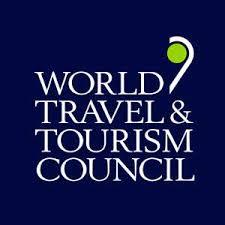
World Travel & Tourism Council issues statement on Nice, France attack
LONDON, England – The World Travel & Tourism Council (WTTC) wishes to express its shock and sadness at the abhorrent events in Nice, France on 14 July 2016, and the terrible loss of life.
David Scowsill, President & CEO, WTTC, said: “It is with great sadness that the world hears of another attack in France. We express our heartfelt condolences to the friends and family of the victims of this callous attack. France is the natural home of international tourism – the most visited destination in the world. With this attack on its day of national celebration of the principles of liberty, equality, and brotherhood – the same principles championed by Travel & Tourism – our sector stands in unity with the people of Nice and France.
“Les hommes de tous les pays sont frères, celui qui opprime une seule nation se déclare l’ennemi de toutes” (Men of all countries are brothers , one who oppresses one nation declares himself the enemy of all). – Robespierre
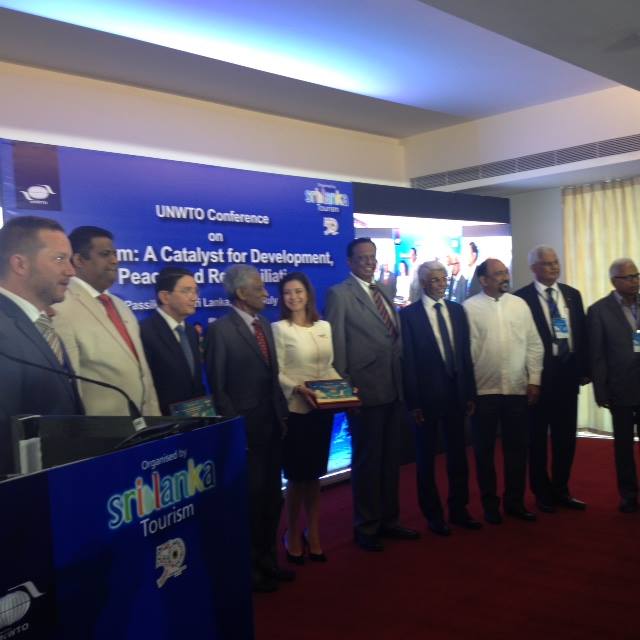
Tourism, a catalyst for peace and development
MADRID, SPAIN -Tourism can play a key role in building peace and supporting reconciliation processes, concluded the UNWTO Conference on ‘Tourism, a catalyst for development, peace and reconciliation’ held in Passikudah, Sri Lanka between 11 and 14 July.
Community engagement and empowerment, capacity building and training, and public/private sector partnerships are key factors in advancing a culture of peace through tourism in post-conflict societies. Participants recalled the importance of placing tourism at the heart of the peace and reconciliation agenda, to ensure the sector can deliver on its capacity to generate development and social inclusion.
“Tourism is a vehicle for trust and goodwill. Cultural understanding can change attitudes and build peace. Tourism’s role in peace building is also enacted through its contribution to poverty alleviation, cultural preservation and environmental conservation,” said President of Sri Lanka Maithripala Sirisena in a message to the Conference.
“For most of the last thirty years, this place has been a warzone. Today, Passikudah is an example of how people affected by conflict have picked up the pieces and rebuilt their lives. We would not be meeting here if it were not for peace,” said the Minister of Tourism Development and Christian Religious Affairs and Lands of Sri Lanka, John Amaratunga. “We will work to provide an example to the world on how to rise from the ashes of conflict to become a leading tourism destination,” he added.
“We face a deficit of tolerance. Tourism brings people together; it opens our minds and hearts”, said UNWTO Secretary-General Taleb Rifai, opening the Conference. “Yet to gain peace we need to give people opportunities for a better future; we need to create jobs and bring them hope,” he added.
“The Petra National Trust conducted a number of informal surveys that suggest that when tourism is poorly managed, societal tensions persist, local communities’ connection to their heritage weakens, responsible practices around tourism sites suffer, and local culture and values erode,” said HRH Princess Dana Firas, Chair of the Petra National Trust, Jordan, in her keynote address.
The Conference focused on four main topics: the contribution of tourism development to peace, local community involvement and ‘peace sensitive tourism’, public/private partnerships, and marketing in post-conflict destinations.
“This was an historical event in an area once torn apart by war. We trust that tourism development in Sri Lanka will bring more opportunities to the people and particularly the youth of the country,” said Paddy Withana, Chairman of Sri Lanka Tourism, closing the event by recalling that the conference welcomed perspectives on how that can be done in full respect of communities and traditions from across the country.
On the occasion, five Sri Lankan companies – Aitken Spence Hotel Holdings PLC, Lanka Hotels & Travels PVT Ltd, Laugfs Leisure Limited, Siddhalepa Ayurveda Health Resort and Theme Resorts & Spas Pvt Ltd. – signed the Private Sector Commitment to the UNWTO Code of Ethics for Tourism, pledging to upload and promote the values of the Code. The signing ceremony was witnessed by UNWTO Secretary-General Taleb Rifai, the Sri Lankan Minister of Tourism Development and Christian Religious Affairs and Lands of Sri Lanka, John Amaratunga, and Hiran Cooray, Member of the World Committee on Tourism Ethics.
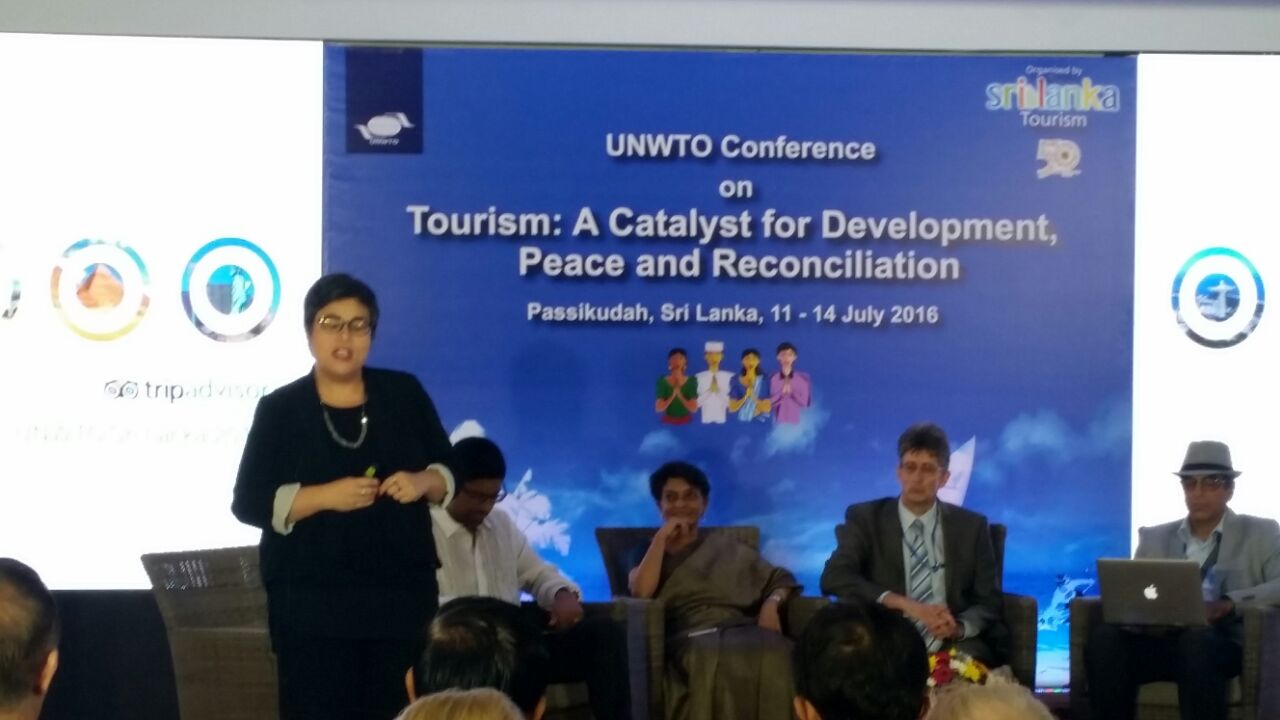
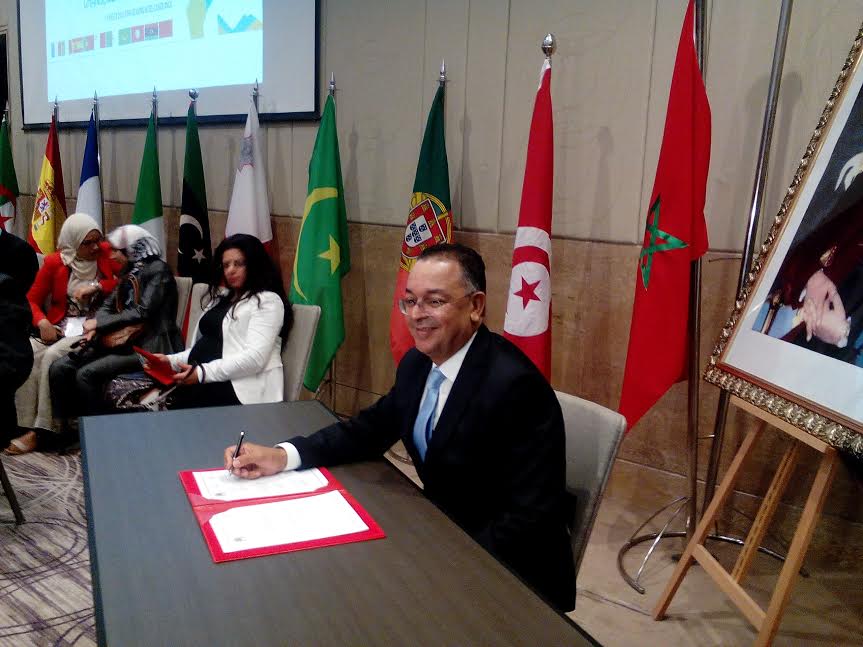
Morocco welcomed conference on tourism and climate change
CASABLANCA, Morocco – Climate change has become a world concern affecting the tourism sector, just like other sectors, such as the economy.
Casablanca welcomed on Monday, July 11, 2016, the fourth Conference of the 5+5 Dialogue of Tourism Ministers on the Western Mediterranean.
Organized under the theme “Tourism and Climate Change,” this COP22 conference is an opportunity for exchanges between Western Mediterranean countries, the complexity of the links between climate factors and tourism, as well as the needs adaptation and mitigation to be adopted to deal with climate change in a fragile context.
It comes on the eve of the MEDCOP 22, which will take place on July 18 and 19 in Tangiers, and confirms the mobilization of the Mediterranean tourism industry in the fight against climate change and strengthens the momentum around the COP on Climate Change (COP22) held in Marrakech in the month of November.
According to the UN World Tourism Organization (UNWTO), the influence of climate change is already affecting the tourism sector in different settings and destinations: “It takes recognition that between tourism and climate change, there are interactions. Tourism also contributes to causes of climate change, primarily from emissions of tourism and transport energy used in the industry.”
The tourism sector faces the challenge of climate change and sustainability through the ownership of better sustainable production and consumption.
Awareness of the vulnerability of the tourism sector and the challenges to cope with climate change, along with the importance of the tourism industry in the Western Mediterranean in terms of job creation, poverty reduction, development of natural resources, and the reconciliation of peoples and civilizations, the countries of the 5+5 Dialogue of Tourism Ministers adopted and signed at the ministerial meeting, a “Declaration of Casablanca,” which is another brick in the edifice of tourism cooperation between the countries of this region.
The “Casablanca Declaration” aims to undertake as part of a coordinated approach and joint governance, measures to both assess and monitor the impact of tourism on climate change in the region and to mitigate and/or limit the impacts of climate change on touristic development. It was also recommended at the meeting to set up a “Sustainable Tourism Strategy in the Mediterranean.”
The “Casablanca Declaration” crystallizes the commitment of countries in the Western Mediterranean, including:
– Cooperating in awareness of the risks of climate change on tourism, and tourism’s contribution to climate change.
– Working to limit the impact of tourism activities on climate, including through the promotion of soft modes of transport, the diversification of the tourist offers to ease pressure on the coastline, and improving the energy efficiency of buildings and rational use of water resources in tourism activities.
– Working with all national and regional institutions, as well as the international development of sustainable tourism, and taking into account the constraints of climate change in the Western Mediterranean, especially with the Arab Maghreb Union, the Union for the Mediterranean, the World Tourism Organization, and the private sector and civil society.
The 5+5 Dialogue brought together ten countries bordering the basin Western Mediterranean, namely the five countries of the Arab Maghreb Union (Morocco, Mauritania, Tunisia, Algeria, and Libya) and five countries of Western Europe (Spain, France, Italy, Malta, and Portugal).
The first Conference of the 5+5 Dialogue of Tourism Ministers on the Western Mediterranean was held in May 2006 in Hammamet, Tunisia, and the second conference was held in Ajaccio, France in May 2008. The 3rd edition of this conference was held on December 3, 2014 in Lisbon, Portugal. France, which ensures the Co-Chairs North 5 + 5 Dialogue, will host the work of the 5th Conference of the 5+5 Dialogue of Tourism Ministers in 2018.
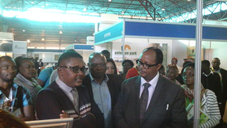
Zimbabwe tourism minister clear front runner for top UNWTO position after RETOSA endorsement
Following the earlier endorsement by SADC, the Southern African Development Community, of Dr. Engineer Walter Mzembi, Zimbabwe’s Minister for Tourism and Hospitality Industry, has now RETOSA, the Regional Tourism Organization of Southern Africa also thrown its support behind Dr. Walter’s candidacy to succeed Dr. Taleb Rifai as Secretary General of the UNWTO, when he retires at the end of next year.
Rarely has a campaign for the Secretary Generalship of UNWTO started this early and with such vehemence, wrong footing any other potential candidates even though it is still a long way to the formal election at next year’s UNWTO General Assembly in Beijing.
The next step in the campaign will now no doubt be the next summit of the African Union, which is taking place later this month in Kigali / Rwanda and neither Dr. Walter nor the Zimbabwean government will let this opportunity pass without tying up AU support and getting an endorsement for him.
Other potential candidates from Africa are now more and more unlikely to throw their hat into the ring, especially should the African Union name Dr. Walter as their choice candidate, and as the UNWTO never before had a Secretary General from Africa, this will – despite the expected opposition by certain Western countries against a Zimbabwean candidate – literally be the key to the World Tourism pinnacle.
Information received from RETOSA’s 07th Ministerial meeting earlier in the week in Botswana’s capital Gaborone clearly shows the organization’s support. With Ministers present from host country Botswana but also from Angola, Mozambique, Lesotho, Namibia and Zimbabwe were the other member countries of RETOSA represented by high ranking officials including Permanent / Principal Secretaries, Directors of Tourism and top tourism board representatives.
The Board Meeting of RETOSA is taking place as this article is filed and expected to further discuss on the sidelines what added support Dr. Walter can expect to bolster his candidacy.
Information received includes excerpts of minutes of the ministerial meeting and the relevant items read as follows:
Start quote:
Ministers noted the candidature of Hon. Dr. Engineer Walter Mzembi, Minister of Tourism and Hospitality Industry for the Republic of Zimbabwe, for election as the next Secretary General of the United Nations World Tourism Organisation (UNWTO). Ministers resolved to support the candidature of Eng. Dr Walter Mzembi, as well as undertake lobbying amongst states outside of the SADC region.
In his response to the endorsement of his nomination, Hon. Dr. Mzembi expressed appreciation to all the SADC Member States for the unparalleled support for his candidature, and undertook to work hard to take the tourism industry at the global and regional level to new heights, building onto the legacy of the current Secretary General of the UNWTO.
Ministers accepted [the invitation] by Zimbabwe for the next meeting of Ministers responsible for Tourism to be held in Zimbabwe in 2017.
End quote
Two added factors will play into the hands of Dr. Walter’s candidacy no doubt, one being the presence of the Caribbean Tourism Organization at the RETOSA meeting, taking home the message of an African candidate for the top job at UNWTO and secondly, and perhaps more important, a recent masterstroke of Zimbabwe, announced during the SANGANAI 2016 tourism trade show in Bulawayo.
It was there that Zimbabwe formally joined PATA, the Pacific Asia Travel Association, as full member, the first outside the original PATA geographical region and notably the first such member from Africa, beating more fancied candidates for such membership like South Africa, Kenya or even Rwanda to the finishing line.
PATA will no doubt now have to consider backing a credible and suitable candidate for the UNWTO Secretary General’s job from within its own organization and should Dr. Walter also get endorsed from that part of the world could his election in Beijing next year almost be a shoe in.
Watch this space for breaking and regular news updates from the tourism scene in the wider Eastern African and Indian Ocean island region.
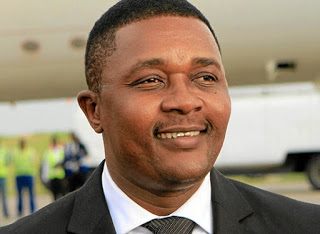
Togo endorses Zimbabwe’s minister Mzembi’s UNWTO campaign for secretary general
International travel and tourism industry issues, the United Nations World Tourism Organization (UNWTO) was on the agenda when His Excellency, Mr Faure Essozimna Gnassingbé, President of the Republic of Togo met with the Hon Minister of Tourism Walter Mzembi from Zimbabwe on Friday.
The Zimbabwe Minister of Tourism and Hospitality Industry, Hon Dr Walter Mzembi, who is the Zimbabwe and SADC-endorsed candidate for the post of UNWTO Secretary General that falls vacant in 2017, met with the Togolese Head of State, yesterday morning in the Presidential Palace in the Togolese capital, Lome.
Hon Mzembi, was accompanied to the meeting by the Permanent Secretary in the Office of the President and Cabinet, Ambassador Stuart Comberbach, Zimbabwe Tourism Authority Chief Executive Mr Karikoga Kaseke and a senior Ministry official.
The visit to Togo comes as Minister Mzembi steps up his campaign to secure the top UNWTO post, and in the wake of his participation at a number of statutory UNWTO Regional Commissions where, as Chairperson of the Commission for Africa, he has been able to share ideas and experiences and to contribute towards the development of effective strategies designed to position tourism as a key vehicle and enabler of global sustainable tourism development.
In his discussions with the Togolese Head of State, Minister Mzembi first of all conveyed President Robert Mugabe’s gratitude to his Togolese counterpart for gracing and officiating at the Zimbabwe International Trade Fair in April 2016. He then reiterated the determination expressed by President Mugabe to explore ways in which the two countries could cooperate and to learn and benefit from one another’s experience. The Minister stressed Zimbabwe’s readiness to work with Togo in the areas of tourism development, product development and building on previous discussions, on assisting Togo in the establishment of protected conservation areas.
The Minister stressed the need to accelerate the implementation of such cooperation noting that Zimbabwe had been seriously affected by the El Nino-induced drought which had already caused significant loss of wildlife across the country. As a way of mitigating such losses and as a key component of the envisaged cooperation with Togo and with indeed other African countries, Zimbabwe was actively considering a programme of translocating live game animals into protected conservation areas beyond its borders.
The Minister confirmed the readiness of his counterpart, the Minister of Environment, Water and Climate, to dispatch a team of experts to Togo to familiarize themselves with the local habitat and to make an informed assessment with regard to the feasibility of wildlife translocation to designated conservation areas in the West African state. The team would also be able to advise on the possibility of replicating, within the region, the concept of multinational conservation parks such as the KAZA Transfrontier Park involving Angola, Botswana, Namibia, Zambia and Zimbabwe.
The Minister informed the President that his leadership qualities within UNWTO had been tried and tested by way of his chairmanship of the Regional Commission for Africa (CAF) from 2013 to 2015, noting that the Commission had unanimously renewed his mandate for another two-year term during the last UNWTO General Assembly held in Medellin, Colombia.
In his response, President Faure Essozimna Gnassingbé said Minister Mzembi was clearly qualified for the job, and committed himself to supporting the candidature and to working to ensure additional support within the ECOWAS region.
The President emphasized the need for the African Union to reach consensus on the candidature and to unite in support of a single African candidate.
The meeting concluded with the President requesting the Minister to meet a team of officials from the Togolese Environment Ministry to work out a concrete plan of action with regard to an exchange of visits in order to implement the program of cooperation.
Later the same day, the Minister met with the Togolese Minister of Environment and Forests who was accompanied by the Commander of the Togolese Armed Forces, and agreed that, within the next two weeks, a team of experts from the Ministry of Environment, Water and Climate would be dispatched to Togo in order to carry out an assessment of the local habitat and climatic conditions and to make recommendations on what species of wildlife would be suited for translocation from Zimbabwe to protected conservation areas in Togo.
Thereafter, it was agreed that a team of experts from Togo would be invited to Zimbabwe for further training in all relevant aspects of conservation and wildlife management at Mushandike Wildlife Park – including capacity building in conservation management, law enforcement and natural resource monitoring.
During the meeting, Minister Mzembi appealed to the Togolese Minister of Environment and Forests to support Zimbabwe’s proposal for sale of its ivory stock pile, to be tabled for consideration during the forthcoming CITES meeting in Johannesburg, South Africa.
The Togolese Minister assured the Minister of his support and said that he would raise the issue directly with the Togolese Head of State within the coming days.
It is imperative to highlight that the highly respected Minister, has the requisite international statesmanship and qualities to lead the UNWTO as a suitable electable leader. In his previous conversations, he has maintained that “if I was responding to a routine job vacancy, I would confidently say I am most qualified on my own merit however this is an elective position with geopolitical considerations, therefore endorsements are key. I must hasten to say, this is not a competition for a job but a deployment, and the endorsements that I am seeking speaks to answering geopolitical aspirations, Africa in the first instance and what global tourism we want to see going forward. However, akin to all electoral competitions, whatever candidature emerges, should consider Zimbabwe, SADC and hopefully Africa’s candidate a serious proposition”.
Generally, there is a very positive acceptance of Dr Mzembi’s statecraft and bureaucratic competence for Secretary General of the UNWTO post. As an elective international civil servant position, which requires competent skills, it ordinarily involves a lot of interests, and Minister Mzembi has been around long enough to know where to take the organization in fulfilling members’ aspirations and expectations. The pedigree of his candidature goes beyond just advocacy, marketing and promotion of global tourism to a real international deal broking and statesmanship, which are the hallmarks needed to confront contemporary challenges that the tourism sector is facing. He, is a man that the world can trust, a man who can lead the organization in the direction of sustainable transformative growth and development.
Earlier Minister Mzembi delivered a personal letter from the President of the Republic of Zimbabwe, His Excellency, Cde Robert Gabriel Mugabe to the Togolese Head of State.

